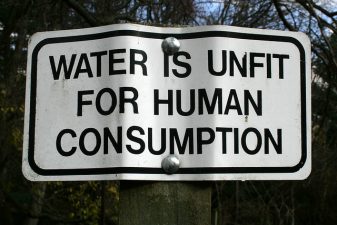 The Federation of American Scientists urge Yemen to take up “science diplomacy” – otherwise existing security problems could get worse.
The Federation of American Scientists urge Yemen to take up “science diplomacy” – otherwise existing security problems could get worse.
Yemen looks like the bust of a flat-faced woman floating on the Gulf of Aden. Recently this harsh stretch of land, which shares its northwestern and most volatile border with Saudi Arabia and is flanked by Oman in the east, has been the scene of much hullabaloo over a terror plot in the US. Most of the country’s problems are attributed to Al-Qa‘ida’s presence in the Arabian Peninsula (AQAP), a disruptive presence indeed. But scientists are trying to draw attention to another crucial source of present and future danger: water scarcity.
The Federation of American Scientists (FAS) claim that within the decade, Yemen’s capital city Sana’a could exhaust its water reservoir. Meanwhile, the population, a third of which is malnourished and 40% of whom live on less than $2 each day, is set to double in the next two decades. The city’s fossil reservoir is being drained at an unsustainable rate of 5m each year. In part this water is being used to souse the country’s ghat habit – as both a moderate cash cow and recreational stimulant – as well as other crops, and in part it is being squandered.
According to FAS:
While a tribal management system was long effective in regulating water use, it largely disappeared with the creation of the Republic of Yemen and the deployment of diesel well pumps; what remains is an unregulated and unsustainable use pattern across the country—a race to use more water, faster, before it disappears.
…security analysts consider the southern secessionist movement to be the single-greatest threat to the state’s stability and longevity. Chief amongst their claims against the central government in Sana’a is the government’s failure to provide access to essential resources, especially a stable water and energy supply. And in the wake of the military campaign against the Houthis in Sa’ada, more than 200,000 internal refugees were created and the region suffered extensive infrastructure loss and damage, exacerbating existing resource shortages and inequalities…
As a result, FAS is urging policymakers to incorporate science diplomacy as an integral ingredient to security. If ongoing security efforts fail to take into consideration basic environmental concerns – people need water to survive, and social inequalities – some get more water than others, they argue that no armory will be large enough to quell hostilities.
(For more on the potential for science diplomacy see FAS President Charles Ferguson’s piece The Ecology of International Security.)
:: FAS
More on water and security in the Middle East:
Leaders In The Middle East Need To Take A Big Jump To Address Water Problems
Water Wars In The Past – Five Mideast Countries Tackle Sandstorms
Strategic Foresight Group’s Forecasts for Water in the Middle East
image via SeLmAn pInArLI



